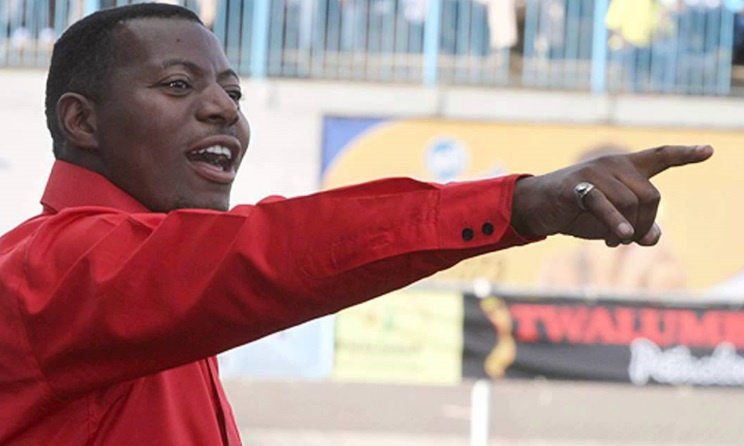Zim writer recalls sungura musician Tongai Moyo
As we commemorate the life and times of Zimbabwean sungura maestro Tongai Moyo, we look back at the time when the colourful singer was a simple clerk at a hospital in his home town of Kwekwe.
 Tongai Moyo was loved by many.
Tongai Moyo was loved by many.
Those who used to see him at Kwekwe Hospital say he was quite an affable character with big dreams. Often referred to as Dhewa, Moyo decided to become a full-time musician, which was the turning point of his life. I would call Dhewa a game changer since he brought swag, style, spark and competition to an otherwise lousy sungura scene.
I’ve known Dhewa as a musician with star quality, finesse and stamina, and one who was not shy to show and tell that he had what it took to make it in the industry.
Frankly speaking, there are things we should remember him by since he left an indelible mark on the local music scene. Indeed, the good die young and for Tongai I would say he died before his time.
As one of his favourite arts journalists and friends, it sort of put me in that position to share one or two things about the ‘Muchina Muhombe’ singer.
First and foremost, Dhewa succumbed to cancer – non-Hodgkin lymphoma – which also took the life of veteran theatre and screen actor Walter Muparutsa.
Dhewa died on 15 October 2011, and the nation and the music fraternity was plunged into mourning. He breathed his last at St Anne’s Hospital in Harare, after a protracted fight against the cancer.
I guess two things quickly come to mind about Dhewa. Firstly, he dared to be different. He learnt that simplicity was the best sophistication. If you want to see this, listen to all his songs. Much of what he sang was inspired by his personal life. He sang the way he saw life and that gave him the competitive edge over everyone else.
Like anybody else he was influenced by other musicians including the late Leonard Dembo and Oliver Mtukudzi but he found his own formula that he perfected and mastered. His topics touched on love, relationships, self-love and respect for one another, restraint, progress and happiness.
Songs such as ‘Kapuka Kanonzi Rudo’, ‘Muchina Muhombe’, ‘Naye’ and ‘Muridzi Wenyaya’ to mention a few attest to this. It is true Dhewa had self-love and I remember him saying this to me: “Jona ndikasazvida ndozodiwa nani?” (If I hate myself then who will love me?) This was in response to his detractors who thought he was full of himself or that he was a show-off. Even in the Holy Bible it says: "Love your neighbour as you love yourself."
Since I had the opportunity to sit down with Dhewa, I found out that he was misunderstood by many people.
Secondly, Dhewa loved his life. He would not trade his life for anything and until today if he were to be asked to make a wish he would wish for another lifespan. This determination to live was seen throughout his battle with cancer.
I also remember the day he came to Harare for his routine check-up. He stopped and said: “Jona, I wish I was HIV+ because that way I would be on anti-retroviral treatment which is far less deadly than cancer.”
He also showed his determination when he said that he was not a charity case. True, he wanted to be responsible for his actions and did not want to bother anyone – neither his friends nor family.
At one time, the bedridden artist surprised his fans when he showed up at a charity match at Rufaro Stadium in Harare, which was organised by Chipaz Promotions. Although he didn’t play, he got a far more important role as the head coach of the musicians’ side alongside the late Cephas Mashakada who by then was battling diabetes.
Dhewa is gone but he left a big void that will never be filled because he changed the way fans viewed sungura music after he debunked the stereotype that musicians are a scruffy lot. Many loved him not just for his music but also his personality, which charmed even his contemporaries.
This article first appeared in Gemnation.




















Commentaires
s'identifier or register to post comments